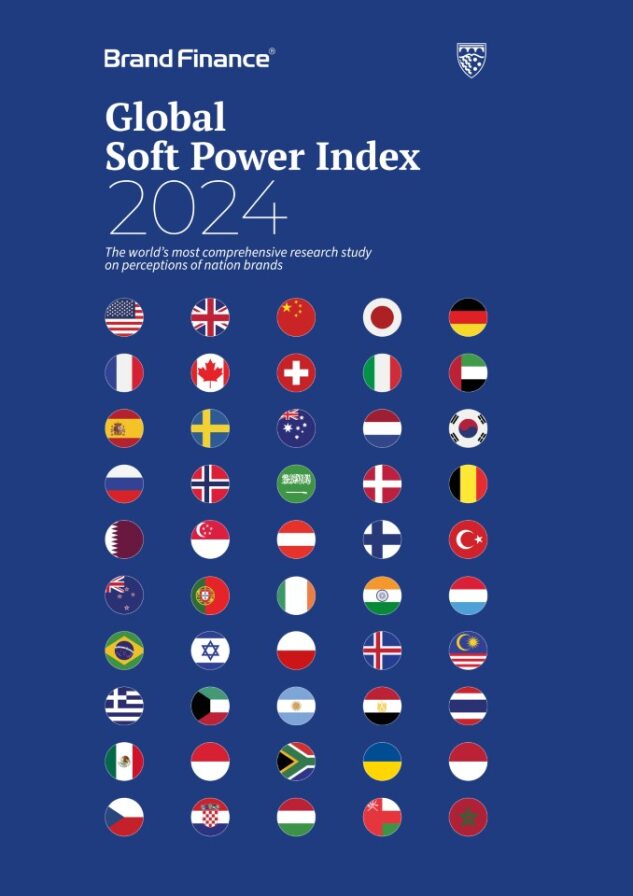This article was originally published in the Global Soft Power Index 2024

Chairman and CEO,
Brand Finance
When countries and political groups increasingly wield Hard Power, a natural and common response should be for global leaders to turn to Soft Power to restore stability and cooperation.
However, we are living in uncommon times. The shifts in the current global landscape are deeper than simple conflicts across borders, and it is evident that we are experiencing fundamental, systemic challenges to traditional diplomacy. Multinational organisations are being weakened and the rules-based system established after World War II is eroding, with some countries neglecting established diplomatic frameworks, opting for unilateral approaches over collaborative efforts.
When established norms are rejected, it can make Soft Power feel powerless – after all, who has time for influence and persuasion while the rule book burns?
The truth is that uncommon times are when Soft Power has the most potential to bridge differences and build accord. Populations subject to the use of force are eager for peace and open to Soft Power as a pathway toward reconciliation. The ongoing conflict between Russia and Ukraine is a timely example: as tensions escalate and diplomatic channels are strained, Soft Power provides an escape for nations that feel hopelessly trapped in a struggle. When military might and geopolitical manoeuvring fail to reach a consensus, Soft Power is the answer, given its singular strength to de-escalate conflict and forge lasting peace agreements.

The 5th iteration of the Global Soft Power Index reveals intriguing insights into the dynamics of Soft Power in 2024. The growing significance of Business & Trade attributes amidst economic challenges and political instability underscores the role of economic strength in shaping a nation's Soft Power profile. The continued dominance of the US and UK in the Index, retaining 1st and 2nd position for the third year running, reaffirms their respective abilities to influence through a combination of familiarity, reputation, and clout.
This year, China records a rapid rise in Soft Power, overtaking Germany to claim third position, as the European powerhouse stagnates in the post-Merkel era. As large regional powers like India, Brazil, and South Africa strive to overcome challenges and realise their Soft Power potential, Middle Eastern nations emerge, rising in the ranking by leveraging strategic initiatives and major events to boost their nation brand perceptions.
As we delve deeper into the findings of the Global Soft Power Index 2024 and our new research on investment, trade, talent, and tourism attraction, we are presented with a unique opportunity to explore the potential of Soft Power in shaping a more peaceful and prosperous world.
In the face of mounting geopolitical tensions, let us not forget the transformative potential of Soft Power. The real power lies in dialogue and cooperation, rather than confrontation and coercion, to build and maintain a more stable and harmonious world for generations to come.

